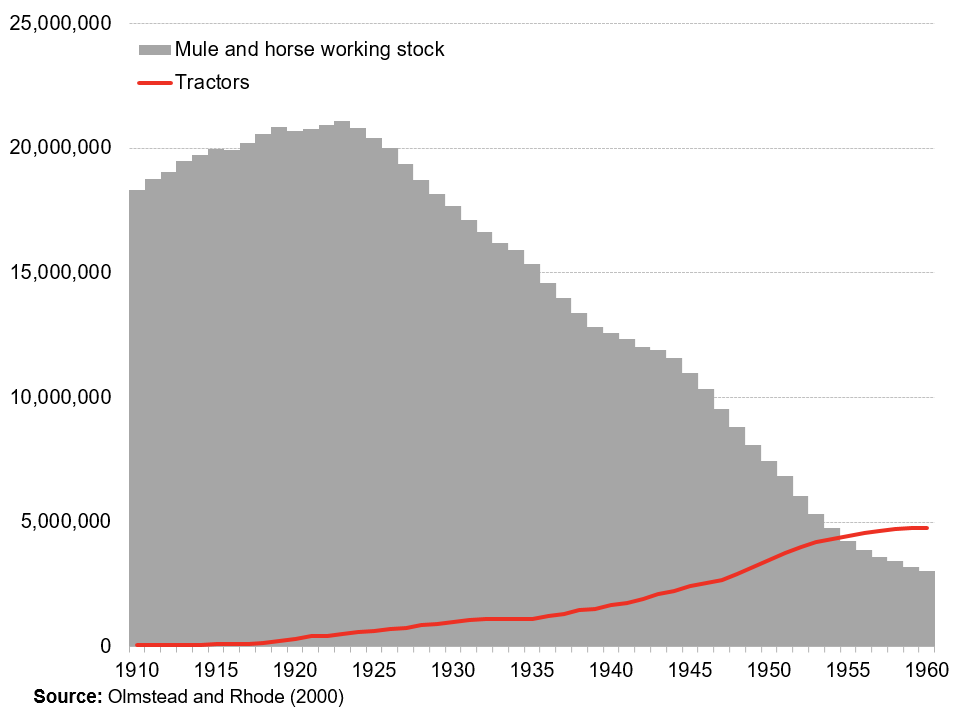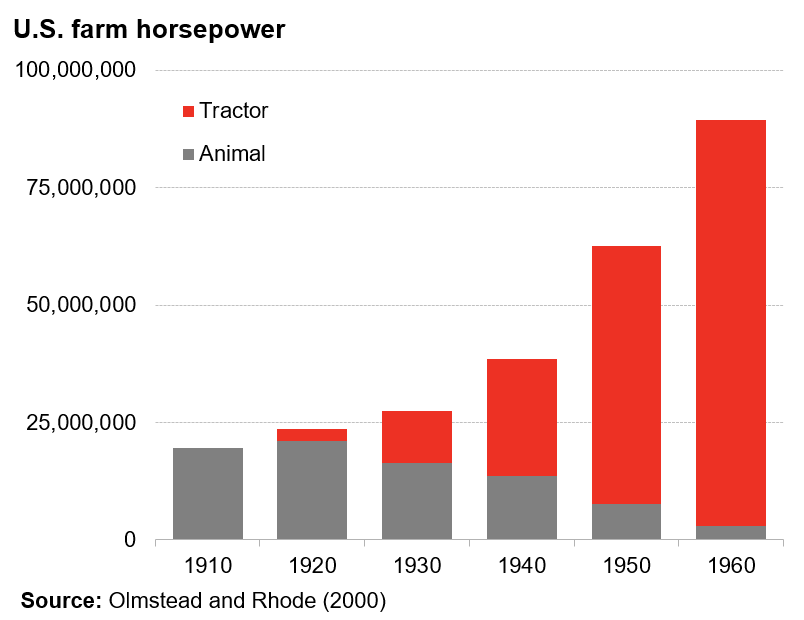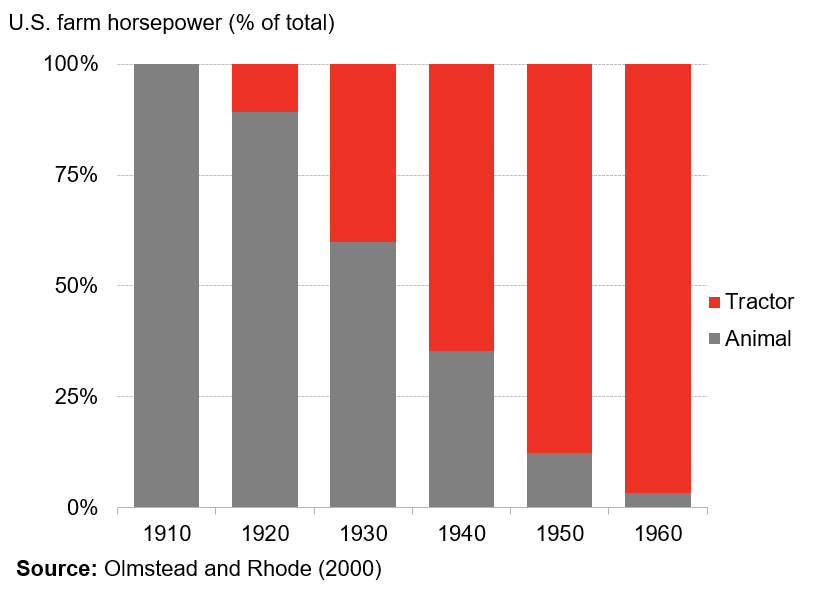It was not until 1955 that the U.S. had more tractors than horses and mules working on farms. A brief thread (from this awesome paper) on what mechanization did for U.S. agriculture. https://www.nber.org/papers/w7947.pdf
The tractor:
Replaced about 23 million draft animals, and expanded the draft-power on farms more than four-fold.
https://www.nber.org/papers/w7947.pdf
Replaced about 23 million draft animals, and expanded the draft-power on farms more than four-fold.
https://www.nber.org/papers/w7947.pdf
The tractor:
Increased the effective cropland base by 79 million acres. This represented an increase of about 30%and was equal to 2/3 of the total cropland harvested in 1920 in the territory of the area of the Louisiana Purchase.
https://www.nber.org/papers/w7947.pdf
Increased the effective cropland base by 79 million acres. This represented an increase of about 30%and was equal to 2/3 of the total cropland harvested in 1920 in the territory of the area of the Louisiana Purchase.
https://www.nber.org/papers/w7947.pdf
The tractor:
Increased the effective area of pastureland by about 80 million acres. This land was largely converted from feeding horses and mules to providing food and fiber for human consumption.
https://www.nber.org/papers/w7947.pdf
Increased the effective area of pastureland by about 80 million acres. This land was largely converted from feeding horses and mules to providing food and fiber for human consumption.
https://www.nber.org/papers/w7947.pdf
The tractor:
Was one of the great labor-saving innovations of the twentieth century. Relative to the horse technology that it replaced, in 1960 the tractor reduced labor requirements by about 1.7 million workers.
https://www.nber.org/papers/w7947.pdf
Was one of the great labor-saving innovations of the twentieth century. Relative to the horse technology that it replaced, in 1960 the tractor reduced labor requirements by about 1.7 million workers.
https://www.nber.org/papers/w7947.pdf
The tractor:
reduced farm labor equivalent to 25% of farm employment in 1960 and 28% of
the decline in farm employment between 1910 and 1960.
https://www.nber.org/papers/w7947.pdf
reduced farm labor equivalent to 25% of farm employment in 1960 and 28% of
the decline in farm employment between 1910 and 1960.
https://www.nber.org/papers/w7947.pdf
The tractor:
Accounted for about 37% of the growth in farm size between 1910 and 1960. The average American farm in 1960 was 58 acres larger than it would have been without the diffusion of tractors.
https://www.nber.org/papers/w7947.pdf
Accounted for about 37% of the growth in farm size between 1910 and 1960. The average American farm in 1960 was 58 acres larger than it would have been without the diffusion of tractors.
https://www.nber.org/papers/w7947.pdf
The tractor:
Accounted for the disappearance of at least 967k farms by 1960.
https://www.nber.org/papers/w7947.pdf
Accounted for the disappearance of at least 967k farms by 1960.
https://www.nber.org/papers/w7947.pdf
OK a few more charts.
1/ Total farm horsepower increased 5x over five decades; animal horsepower peaked in the 1920s.
2/ Mechanical horsepower was 50%+ of all farm horsepower by 1940.
https://www.nber.org/papers/w7947
1/ Total farm horsepower increased 5x over five decades; animal horsepower peaked in the 1920s.
2/ Mechanical horsepower was 50%+ of all farm horsepower by 1940.
https://www.nber.org/papers/w7947

 Read on Twitter
Read on Twitter




